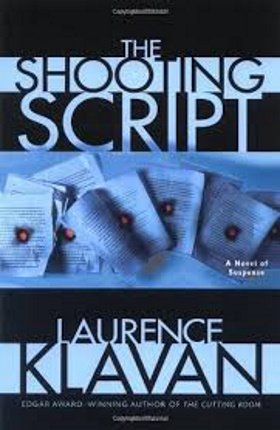I finished what I’d read with a feeling of empathy. Dena’s father had been unrequited, and had committed to a family he didn’t want and couldn’t support. It was too bad he hadn’t lived later, when trivial people could find a community, instead of sneaking around like perverts. After all, I felt that’s what Ted Savitch had been, in the deepest sense of the word: trivial.
I forced myself to snap back to the matter at hand. There had been no mention of The Day the Clown Cried. Could such a dreamer ever have gotten his hands on such a score? If I didn’t find the tape again, I might never know.
I tried to be discreet when I called Dena. I had noticed a splotch on the last diary page, which was probably food but might have been tears.
“Pretty interesting,” I said. “But it doesn’t really get us anywhere.”
“Thanks for the review,” she said, with surprising testiness. “It is a man’s life, you know.” Then she got in a dig. “How about the tape?”
I tried to sound secure. “Any minute now.” The excruciating moment passed. “How long will you be in Bar Harbor?”
“Until the end of the week. If I don’t learn anything else.”
“And then?”
“Don’t know.”
This quest had clearly given Dena’s life some structure; maybe that had been the point of it, after all. When it ended, where would she be? I knew the feeling.
“You?” she said.
Luckily, before I could answer, a knock came at the door. Resting the receiver on my shoulder, I opened it.
Katie the assistant was standing there. She wore shorts and a T-shirt that hiked appealingly above her stomach. Her hair was the color of fire. She pantomimed a bike ride invitation in a way that made me laugh.
“Roy?” Dena said, in my ear.
“What?”
“What’s so funny?”
“Nothing. What do you mean?”
“Look,” Dena said, “what are you actually doing there in Amsterdam?”
I gestured to Katie that I’d be off in a minute. She gave me a thumbs-up, and a cute little muscle flexed in her bare arm.
“I think,” I said, “that I’m about to learn something.”
ONE BIKE WITH TWO SEATS AND FOUR PEDALS WAS PARKED OUTSIDE. I hadn’t ridden since high school and hadn’t even seen a tandem since childhood. But Katie scoffed at my hesitation.
“How fast can we go?” she said, getting on the front seat. “Besides, everybody rides in Amsterdam.”
It was true. As we pumped along the cobblestone “Straats,” “Pleins,” and “Grachts,” as we took small bridges above canals, it seemed like we had joined an army of cyclists. I only fell off twice, and Katie was nice enough not to laugh. Too loudly.
She laughed about virtually everything. Apparently, the grind of New York publishing—and normal employment in general—hadn’t agreed with her. Katie had babysat the louche and dissolute Graus through a disastrous book tour. Then she accepted his bleary offer to come work for him.
“If you can call it work,” she said. “Either way, it’s better than nine to five. That wasn’t for me.”
I was no match for the athletic Katie, who stood up, attractively, to push up and down on her pedals.
“Well, it’s definitely not boring!” I called, panting.
She laughed again, looking back. “It’s lucky I’m open to new experiences! Sorry about the one yesterday, though!”
“You mean—” How could I put it decorously? “Beating up Graus in the pot bar?”
“Right!” Laughing. “We had to improv that one pretty fast! See, we re-create exciting scenes from old movies! It was Johnny’s idea, once he found out what Graus was, you know, into! Johnny’s been teaching me a lot about them, movies. The best he could come up with yesterday was Frenzy, the Hitchcock picture! Did you ever see it?”
“Of course! The necktie killer!”
“Right! We had to use Graus’s scarf! Not the same thing!”
This was of great prurient interest. I dragged a foot on the ground, unsubtlely. We rested on a bridge.
“How did you meet Johnny?” I asked.
“At a party in New York. He got a kick that I work for Graus. Right now, we’re in town shooting a new movie. Graus plays a Nazi. Again.”
The typecasting was a shift from how he’d started his career: as a concentration camp inmate. Now seemed like a good time for a segue. “It must bring him back to his days as an extra.”
“Probably,” she said, shrugging.
I jumped in, ignoring Johnny’s directive. “What do you know about The Day the Clown Cried?”
“What do I know about it? Or what do I know about what Graus knows about it?” From someone else, it might have sounded hostile. Yet Katie retained a weird sunniness, even while stonewalling. She clearly wanted to experience and express every emotion, just to see how it felt.
“About what Graus knows.”

























